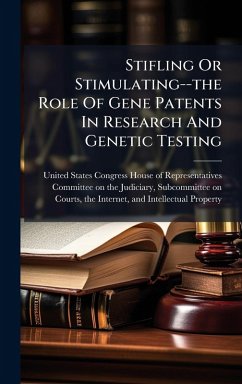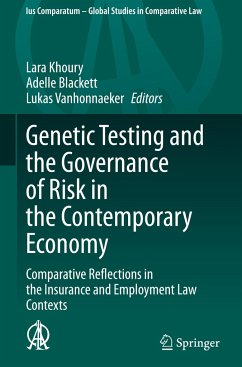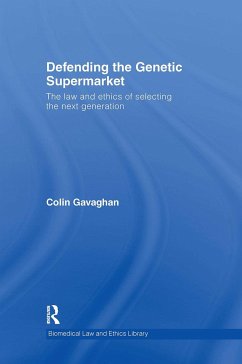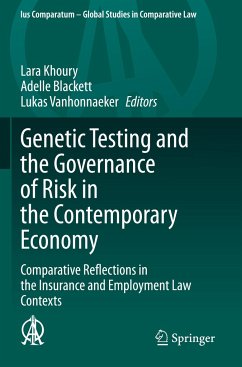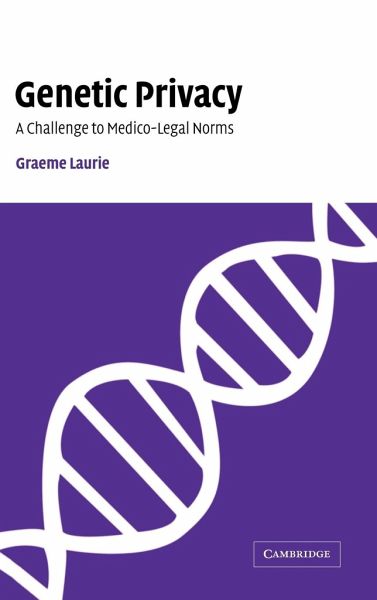
Genetic Privacy
A Challenge to Medico-Legal Norms
Versandkostenfrei!
Versandfertig in 1-2 Wochen
127,99 €
inkl. MwSt.
Weitere Ausgaben:

PAYBACK Punkte
64 °P sammeln!
The phenomenon of the New Genetics raises complex social problems, particularly those of privacy. This book offers ethical and legal perspectives on the questions of a right to know and not to know genetic information from the standpoint of individuals, their relatives, employers, insurers and the state. Graeme Laurie provides a unique definition of privacy, including a concept of property rights in the person, and argues for stronger legal protection of privacy in the shadow of developments in human genetics. He challenges the role and the limits of established principles in medical law and e...
The phenomenon of the New Genetics raises complex social problems, particularly those of privacy. This book offers ethical and legal perspectives on the questions of a right to know and not to know genetic information from the standpoint of individuals, their relatives, employers, insurers and the state. Graeme Laurie provides a unique definition of privacy, including a concept of property rights in the person, and argues for stronger legal protection of privacy in the shadow of developments in human genetics. He challenges the role and the limits of established principles in medical law and ethics, including respect for patient autonomy and confidentiality. This book will interest lawyers, philosophers and doctors concerned both with genetic information and issues of privacy; it will also interest genetic counsellors, researchers, and policy makers worldwide for its practical stance on dilemmas in modern genetic medicine.
Table of contents:
Table of cases; Table of legislation; International instruments; Miscellaneous documents; Preface; Part I. Privacy: The General Part: 1. Health care, patient rights and privacy; 2. Privacy: anti-social concept or fundamental right? Part II. Genetic Knowledge: The Existing Models: 3. Human genetics and genetic privacy; 4. Autonomy, confidentiality and privacy; Part III. A New Privacy Paradigm: 5. Privacy and the public interest; 6. Privacy and property?
New concepts of privacy and property rights in the self deserve stronger legal protection following developments in genetics as these affect individuals, relatives, insurers, employers, and the state. Of interest to lawyers, philosophers and doctors concerned with issues of genetics and privacy; also to genetic counsellors, researchers and policy makers.
The right to genetic information is considered here from the standpoint of individuals, their relatives, insurers and the state.
Table of contents:
Table of cases; Table of legislation; International instruments; Miscellaneous documents; Preface; Part I. Privacy: The General Part: 1. Health care, patient rights and privacy; 2. Privacy: anti-social concept or fundamental right? Part II. Genetic Knowledge: The Existing Models: 3. Human genetics and genetic privacy; 4. Autonomy, confidentiality and privacy; Part III. A New Privacy Paradigm: 5. Privacy and the public interest; 6. Privacy and property?
New concepts of privacy and property rights in the self deserve stronger legal protection following developments in genetics as these affect individuals, relatives, insurers, employers, and the state. Of interest to lawyers, philosophers and doctors concerned with issues of genetics and privacy; also to genetic counsellors, researchers and policy makers.
The right to genetic information is considered here from the standpoint of individuals, their relatives, insurers and the state.






